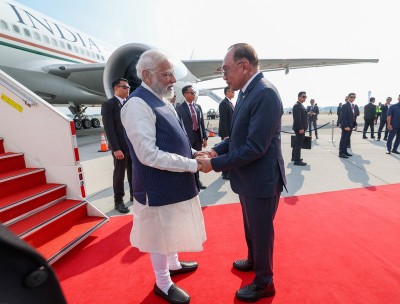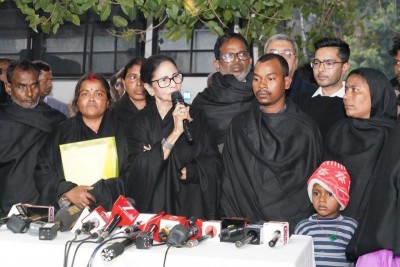February 09, 2026 04:58 pm (IST)
 Pakistan
Pakistan
How Pakistan is losing investability because of its political instability and insecurity
Pakistan has been facing a major investment and savings problem, and an economic crisis which are usually blamed on the political instability of the country and perhaps the first-ever woman Chief Minister of a province (Punjab) in Pakistan, Maryam Nawaz, was not wrong when she flagged it in public.
Political instability generally affects economic growth due to uncertain and inconsistent government policies regarding investment and trade, government expenditure, tax system, fiscal balance, monetary policy, debt structure, inflation, and exchange rates.
Political instability coupled with these factors affects local and foreign investments.
A study analyses, The Economic Costs of Political Instability: Evidence from Pakistan published in the Business Review of the Institute of Business Administration (IBA) Karachi, has found evidence that political instability led Pakistan, which has a long history of various episodes of political instability under various democratic and non-democratic regimes during the period of 1984-2018, to an investment downfall and significantly lower economic growth.
According to the World Bank Global Political Stability Index of 2022, Pakistan has been ranked at 14th position from the bottom line. Pakistan’s Political Stability Index is −1.90 out of the total Index ranging from −2.5 to +2.5. Though the country has slightly improved from the previous years, it's not enough to make a strong investment call.
Recently, the first-ever woman Chief Minister of a province (Punjab) in Pakistan, Maryam Nawaz, who is the daughter of former PM Nawaz Sharif, said that political instability in the country is deterring potential investors.
According to her, political instability is one of the main causes of fear among the foreign and local investors who are afraid of investing in Pakistan.
“Foreign and local investors are afraid of investing in Pakistan because of political instability,” she said.
As per a report by the World Bank, Pakistan is not investing enough and its share of investment to GDP is one of the lowest in the world.
The report suggests that Pakistan needs to redefine its tax policy and administration to raise more revenues and improve the investment environment. Improving the business environment is extremely necessary to tap into foreign resources as Foreign Direct Investment (FDI) to the country is still extremely low.
However, the economy of Pakistan remains fragile with deteriorating macroeconomic indicators, hindered by a series of factors, including dependence on imports and low rates of foreign investment, persistently high inflation, red tape, weak rule-of-law, political uncertainty, corruption, terrorism, security concerns, and long-standing difficulties attracting foreign direct investment.
According to a report published by the U.S. Department of State, there is a challenging environment for investors in Pakistan, while the country has a nominally open foreign direct investment (FDI) regime. Many external investors have reported they are considering suspending or scaling back operations in Pakistan due to their measures.
A study published by the PubMed Central (PMC) found that political instability has a significant negative impact on foreign direct investment (FDI) in Pakistan as political instability can create an uncertain environment that discourages foreign investors from investing in the country.
According to the study, political instability can lead to lower economic growth and investment in developing countries, including Pakistan. It added that political instability has a significant negative impact on economic growth in Pakistan as it can reduce investor confidence, discourage foreign investment, and create an uncertain environment that hinders economic growth.
Pakistan's political uncertainty has had an impact on the inflow of foreign direct investments (FDI), and this falling FDI will be a reason of worry for policymakers at a time when the country's foreign exchange reserves are continuously declining.
A recent media report quoting an analyst said the brewing political crisis in Pakistan is directly linked to the security situation and the recent violence has added to the problem. Even China, Pakistan's closest ally and largest FDI source, is also slowing down and reducing its investments.
Within a span of just ten days in March this year, Pakistan witnessed at least five terror attacks and all were suicide bombings, in which besides military personnel, five Chinese nationals were killed. Some of these attacks were clearly aimed at Chinese interests in Pakistan.
From Pakistan’s Gwadar port in Balochistan, which was built with Chinese assistance, to naval bases in the same province or the ones claiming Chinese engineers working on a hydropower project near Besham city, the attacks were targeted at Chinese interests.
According to a report by the U.S. Department of State, besides political instability, security concerns and rise in terrorist activities are affecting the foreign investment inflow to the country, while abductions and kidnappings of foreigners for ransom still remain a concern.
Support Our Journalism
We cannot do without you.. your contribution supports unbiased journalism
IBNS is not driven by any ism- not wokeism, not racism, not skewed secularism, not hyper right-wing or left liberal ideals, nor by any hardline religious beliefs or hyper nationalism. We want to serve you good old objective news, as they are. We do not judge or preach. We let people decide for themselves. We only try to present factual and well-sourced news.
Support objective journalism for a small contribution.
Latest Headlines
When Calendars Become Quiet Chronicles of Their Time
Tue, Jan 13 2026
Persecuted in silence: A post-Hasina year when violence against Bangladesh Hindus is new normal
Tue, Aug 05 2025
This Indian diplomat in Europe is a poet. Read his verses on the emotional price of war
Thu, May 15 2025
A true Sikh can never support Khalistan
Sat, Nov 16 2024
Trump’s return to White House is no music to ear for Bangladesh interim chief Muhammad Yunus backed by US Democrats
Thu, Nov 07 2024
Islam is culture-agnostic, embraces diversity as will of God
Wed, Sep 11 2024







